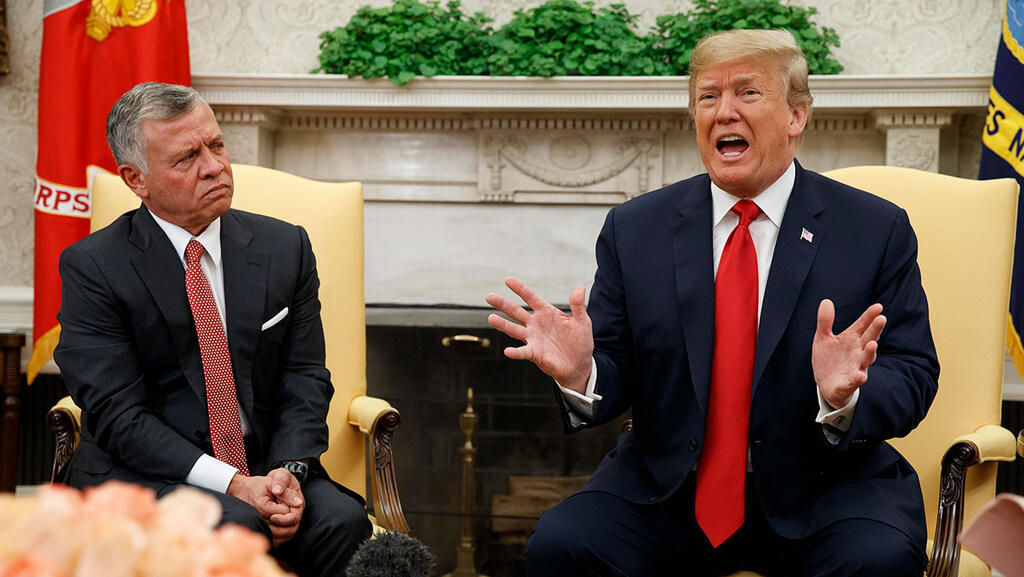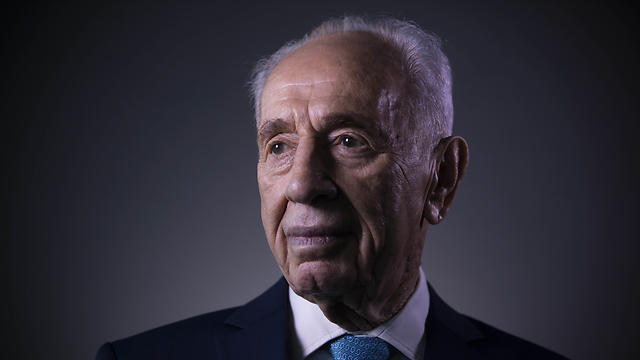Getting your Trinity Audio player ready...
When former U.S. President Donald Trump allegedly offered Jordan the West Bank, the response from politicians across the spectrum was verged on ridicule. Another proof of the insanity and detachment from reality of the former U.S. president. How could he even think about making such an offer in a private conversation with the Jordanian king? He must be mad!
According to the Washington Post report, the whole incident happened during a meeting between the two in Jordan back in 2018, which was recently revealed in a book about the former U.S. president. Trump offered King Abdullah II to reconsider the possibility of retaking control of the West Bank after it was captured by Israel in the 1967 Six-Day War.
“I thought I was having a heart attack,” the Jordanian monarch told an American friend, according to the book titled: The Divider: Trump in the White House 2017-2021, which was penned by The New York Times' White House correspondent Peter Baker and The New Yorker’s Susan Glasser.
Trump assumed the Jordanian option, or rather the Jordanian-Palestinian option, could be a potential solution to the bloody Israeli-Palestinian conflict.
The Jordanian option, was first proposed by the Labor Party after the Six-Day War. According to the proposal, the West Bank territories were captured from Jordan during the war, and will be therefore returned to Jordan, peacefully. The proposal was adopted unanimously during the United Nations Security Council Resolution 242 - territories in exchange for peace.
In 1972, a revolutionary plan to establish a Jordanian-Palestinian federation had emerged. According to it, the West Bank territories would be called the "Palestine District" and would be granted extensive self-government rights.
To realize the option, then-Foreign Minister Shimon Peres met with King Hussein in London in 1987, reaching an agreement, but then-Prime Minister Yitzhak Shamir torpedoed the deal.
Some years after the agreement between Peres and Hussein fell through, the First Intifada broke out, and Hussein ordered to break all ties between Jordan and the Palestinians in the West Bank. The split was approved in the Arab League, and de-facto turned Israel into the midwife meant to deliver a Palestinian state sovereignty. A role Israel could not fulfill.
I published an article on the subject, titled: "The return of the Jordanian option" in April 2016, six months before the U.S. presidential election - which was won by Trump.
Does the fact that the Jordanian option was brought up after all these years specifically by Trump make it invalid? Absolutely not!
Trump is indeed an egomaniac, bloated with self-importance. However, he surprisingly had quite a few creative ideas on the Middle East. He moved the U.S. embassy to Jerusalem, presented a new American peace plan, and managed to establish the Abraham Accords.
Even his greatest naysayers, including myself, had to acknowledge how important the agreements he brokered meant to Israel's integration in the region.
We must face reality, the relations between Israel and the Palestinians reached a dead end. Only those who wish to stick their head in the sand - and there are quite a lot of them across the political sphere - still believe the two-state solution is alive.
The Palestinian nationalism, according to Yohanan Tzoreff, a senior researcher at the Institute for National security Studies, "faces the most severe crisis in its history."
While the Palestinians' economic situation has improved greatly, they lack legitimate and reliable leadership. "Their problem is no longer on top of the international and regional agenda," and the ambition for an independent state has been pushed aside.
In Israel, meanwhile, the Oslo Accords became a profanity, political positions of Menachem Begin and Ariel Sharon considered as radical right back in the days, are now viewed as a moderate center, and the Palestinian Authority in the West Bank has become a subject of mockery.
Our occupation regime serves no political purpose nowadays, other than to thwart terrorist activities.
In this tangled situation, the Jordanian-Palestinian option can provide a gust of new, creative thinking outside the worn-out statements. The potential difficulties in implementing it, or even forming an operative definition, are enormous. In present political and security circumstances, it borders on impossible.
But, without groundbreaking political innovation, we will remain trapped in this bloody cycle for generations, which will eventually lead to a bi-national state.




